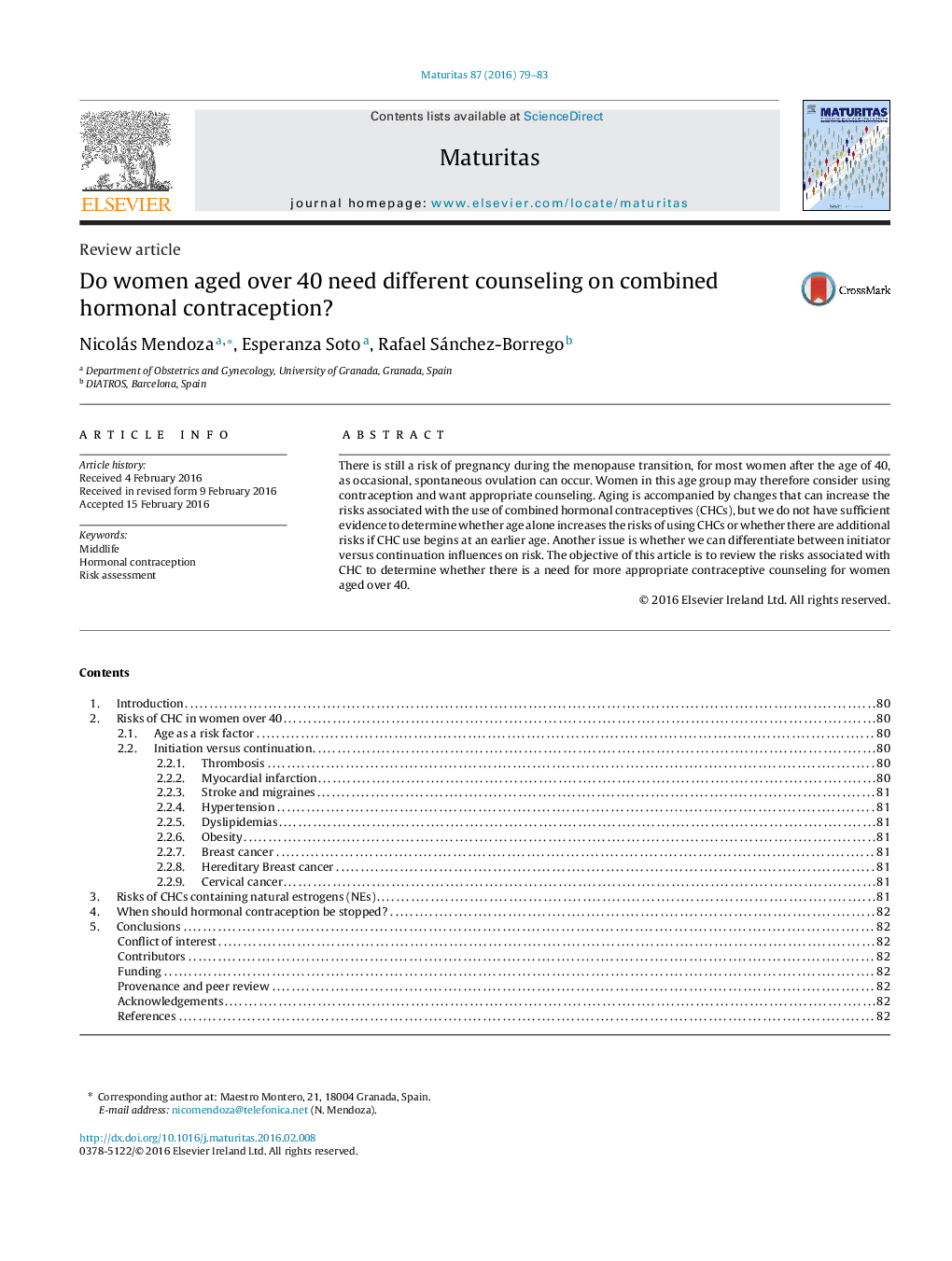| Article ID | Journal | Published Year | Pages | File Type |
|---|---|---|---|---|
| 1916983 | Maturitas | 2016 | 5 Pages |
•Age per se does not contraindicates the use of any combined hormonal contraceptives.•Certain potential risks with the use of combined hormonal contraceptives increase with age, predominantly the risk of venous thrombosis and of myocardial infarction.•The incidence of these risks in users of combined hormonal contraceptives aged over 40 does not differ from that observed in younger women.•The use of new combined hormonal contraceptives containing natural estrogens has been associated with an improved safety profile and has non-contraceptive benefits.•Some risks and benefits of combined hormonal contraceptives depend on whether a woman over 40 starts or continues their use, so this issue will be crucial in contraceptive counseling.
There is still a risk of pregnancy during the menopause transition, for most women after the age of 40, as occasional, spontaneous ovulation can occur. Women in this age group may therefore consider using contraception and want appropriate counseling. Aging is accompanied by changes that can increase the risks associated with the use of combined hormonal contraceptives (CHCs), but we do not have sufficient evidence to determine whether age alone increases the risks of using CHCs or whether there are additional risks if CHC use begins at an earlier age. Another issue is whether we can differentiate between initiator versus continuation influences on risk. The objective of this article is to review the risks associated with CHC to determine whether there is a need for more appropriate contraceptive counseling for women aged over 40.
